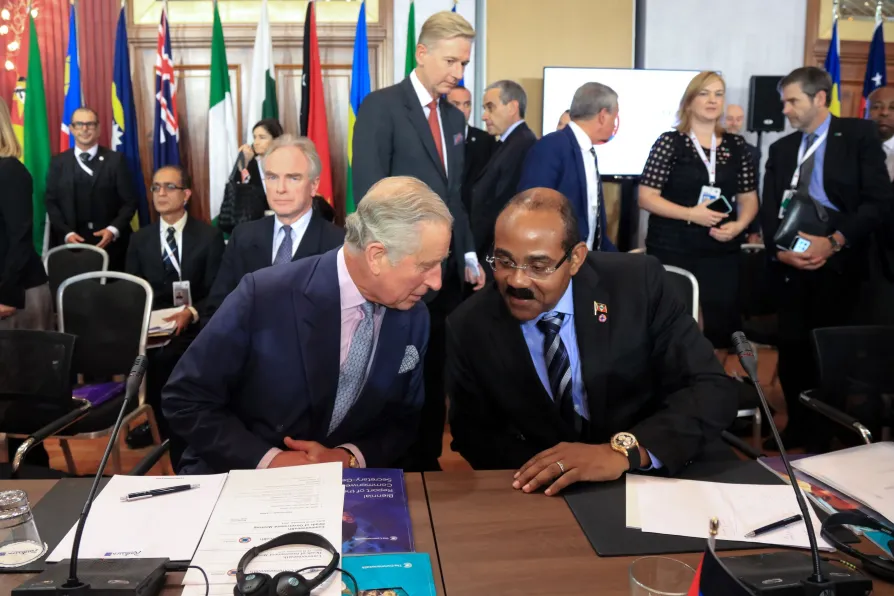Antigua and Barbuda to hold republic referendum following Queen's death

 Charles Windsor speaks with Gaston Browne, the Prime Minister of Antigua and Barbuda, during the Commonwealth Heads of Government Meeting in Malta in 2015
Charles Windsor speaks with Gaston Browne, the Prime Minister of Antigua and Barbuda, during the Commonwealth Heads of Government Meeting in Malta in 2015
ANTIGUA and Barbuda’s Prime Minister has announced, following the Queen’s death, that he will call a referendum on the country becoming a republic within three years.
The Caribbean country is one of 14 nations to retain the British monarch as their head of state, along with Jamaica, the Bahamas, St Vincent and St Lucia.
After confirming Charles’ status as the new King of Antigua and Barbuda, the nation’s Prime Minister Gaston Browne revealed that he would push for a public referendum.
Similar stories

On the anniversary of the implementation of the 1833 Slavery Abolition Act, ROGER McKENZIE warns that the legacy of black enslavement still looms in the Caribbean and beyond













